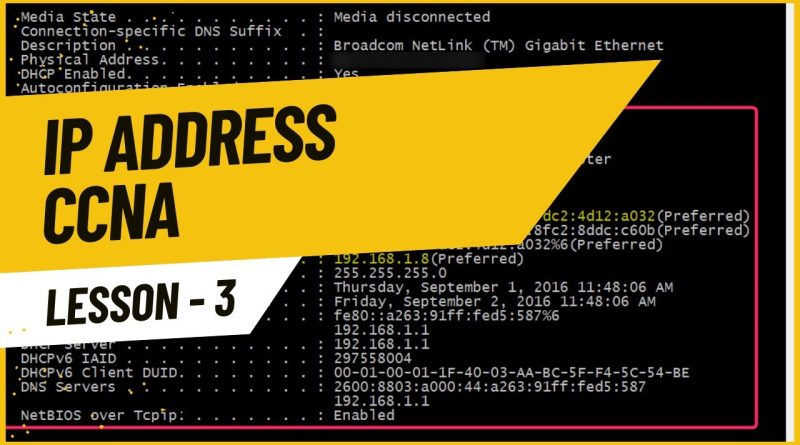IP ADDRESS IPv4 | CCNA
An IP (Internet Protocol) address is a unique numerical label assigned to each device connected to a computer network that uses the Internet Protocol for communication. It serves two main functions: identifying the host or network interface and providing the location of the device in the network.
There are two primary versions of IP addresses: IPv4, which consists of a 32-bit number expressed as four decimal numbers separated by periods (e.g., 192.168.1.1), and IPv6, which uses a 128-bit address expressed in hexadecimal notation.
In a CCNA (Cisco Certified Network Associate) class, you’ll likely delve deeper into understanding IP addressing, subnetting, routing, and other fundamental networking concepts. These are crucial for configuring and managing networks, especially in the context of Cisco devices.
ipv4



